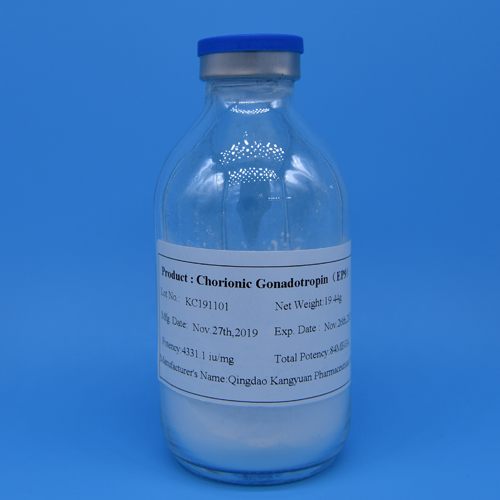Human chorionic gonadotropin (HCG) is a hormone produced by the placenta
during pregnancy. It is also sometimes referred to as the pregnancy hormone. HCG
is primarily responsible for maintaining the corpus luteum during the early
stages of pregnancy, which in turn secretes hormones that support the growth and
development of the fetus.
The manufacture of HCG typically involves using genetically-engineered
bacteria, yeast or animal cells (such as hamster ovary cells). These cells are
first modified to insert the gene for the human HCG protein. Next, the cells are
cultured in a bioreactor or fermentation tank, where they produce large
quantities of HCG protein.
Once the cells have produced enough HCG protein, they are harvested, and
the protein is purified through several stages of chromatography and filtration.
This removes impurities and ensures that the final product is pure HCG
protein.

The purified HCG protein can be formulated into injectable or sublingual
preparations for clinical use. HCG is commonly used in fertility treatments to
stimulate ovulation in women and to increase testosterone production in men. It
is also sometimes used in the treatment of certain types of cancer.
Overall, HCG is a complex protein with a critical role in maintaining a
healthy pregnancy. Thanks to modern biotechnology and manufacturing techniques,
it can be produced in large quantities and used to improve the health and
wellbeing of many individuals around the world.